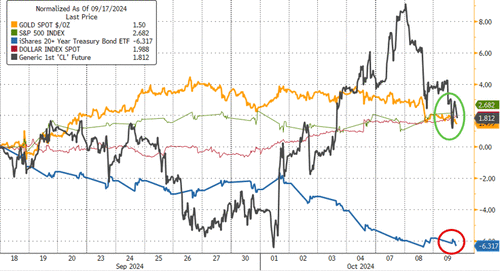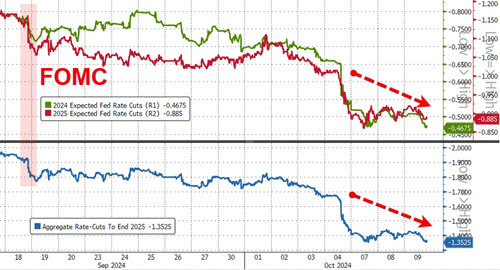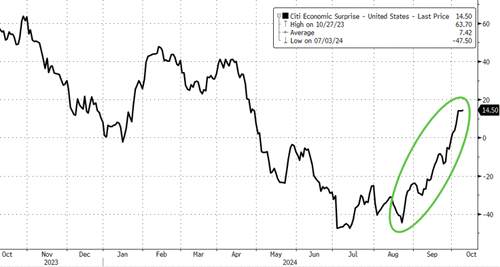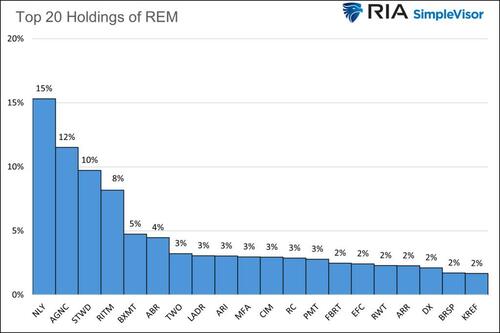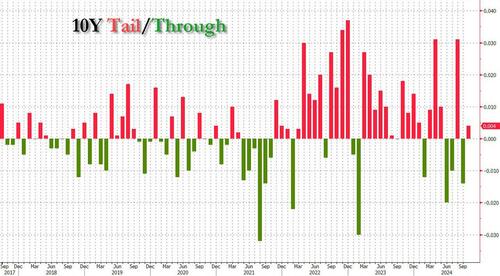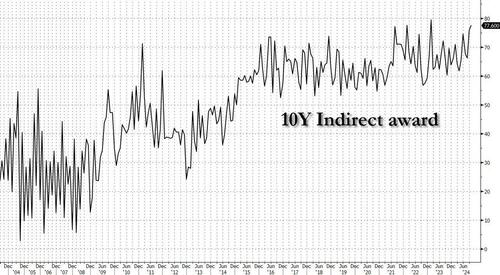Authored by Ben Weingarten via RealClearInvestigations,
On the eve of a highly-anticipated live X “Spaces” conversation between Elon Musk and former president Donald Trump, the powerful (former) European Union Commissioner Thierry Breton warned in August that authorities would be “monitoring” the conversation for “content that may incite violence, hate, and racism.”

While reminding Musk that the EU was already investigating X for alleged failures “to combat disinformation,” Breton said he and his colleagues “will not hesitate to make full use of our toolbox … to protect EU citizens from serious harm.”
The European Commission distanced itself from Breton, who would eventually resign his post while facing scrutiny from U.S. lawmakers for threatening Musk and Americans’ free speech and interfering in domestic politics. But the EU probe of X, which could result in crippling fines, persists.
Although litigation, congressional oversight efforts, and reportage led by the Twitter Files have helped expose the U.S. government’s efforts to pressure social media companies to censor protected political speech, the recent rumblings from Europe underscore the escalating challenges American-based social media platforms are facing from foreign authorities – not just from repressive regimes such as China and Iran, but also from the EU, the U.K., Brazil, and other democracies.
Free speech advocates warn that foreign demands that tech companies comply with their censorious legal and regulatory standards that violate the First Amendment’s protections will hamper the ability of Americans to communicate freely in the digital public square. Facebook’s Community Standards, for example, “apply to everyone, all around the world.” Academics have termed the tendency of companies to apply the strictest local guidelines globally as the “Brussels Effect.”
Mike Benz, a former State Department cyber official and executive director of the Foundation for Freedom Online, argues that foreign efforts to cast populist narratives on matters such as election integrity, immigration, and public health as mis- and dis-information constitute a surreptitious “transatlantic flank attack” on American speech.
However, evidence suggests that U.S. authorities and U.S.-supported NGOs that have sought greater restrictions on speech have, at minimum, indirectly supported these foreign efforts, creating a backdoor method to suppress protected speech at home.
For instance, the White House pressured platforms to censor content pertaining to COVID-19 and election integrity. Agencies from the Justice Department to the Securities and Exchange Commission and Federal Communications Commission have probed Musk’s enterprises during the Biden years.
Defining Illegal Content
The U.S. government has used the FBI and the State Department, among other agencies, to coordinate counter-disinformation efforts globally with other nations. The goal is said to build “a more resilient global information system, where objective facts are elevated and deceptive messages gain less traction,” in the words of Secretary of State Antony Blinken.
As a State Department spokesman told RealClearInvestigations, “The United States is committed to advancing a rights-respecting approach to technology that mitigates potential harms while maintaining the free and open use of digital platforms.”
“We are concerned by actions to limit access to information anywhere in the world,” the spokesman added.
The European Union’s Digital Services Act is seen by champions of stringent content moderation standards and critics alike as the strongest global effort to regulate speech.
Adopted in 2022 and praised by former President Barack Obama and his Secretary of State Hillary Clinton, the measure imposes a slew of regulatory requirements on the more than a dozen social media platforms and search engines that have at least 45 million users in the EU.
It requires these platforms to take measures to counter “illegal content online,” not only responding to user-flagged posts but those fingered by “specialised ‘trusted flaggers’” for removal, according to a European Commission Q&A.
“Illegal content,” the Commission writes, includes “illegal hate speech” and other prohibited rhetoric, pursuant to EU law or those within any of its 27 member states. Platforms also must take “risk-based action,” including undergoing independent audits to combat “disinformation or election manipulation” – with the expectation those measures should be taken in consultation with “independent experts and civil society organisations.” The Commission says these measures are aimed at mitigating “systemic issues such as … hoaxes and manipulation during pandemics, harms to vulnerable groups and other emerging societal harms” driven by “harmful” but not illegal content.
The DSA also references a Code of Practice on Disinformation, under which Big Tech companies such as Google, Meta, and Microsoft have agreed to demonetize purported disinformation pursuant to European Commission guidance.
Notable signatories and contributors to the “self-regulatory” code include the U.S.-based NewsGuard (which took issue, to a degree, with the final product) and the U.K.-based Global Disinformation Index – both of which have received U.S. government funding – and the Brussels-based World Federation of Advertisers.
These organizations have each allegedly targeted the advertising revenue of independent media outlets – with NewsGuard and the Global Disinformation Index disparaging RealClearPolitics – by working with major brands and advertising agencies to blacklist outlets that publish work that challenges official narratives.
The DSA suggests that compliance with the Code of Practice on Disinformation may satisfy its “risk mitigation” standards. European regulators have called for formally incorporating the “voluntary” code into the DSA’s “co-regulatory framework.”
X and Meta in the Crosshairs
X and Meta have both faced “formal proceedings” under the Digital Service Act over the last year concerning potentially non-compliant practices touching on political speech. (Meta CEO Mark Zuckerberg recently expressed regret for caving in to pressure from the FBI and Biden-Harris administration to censor political content the government didn’t want Americans to see).
Those ongoing investigations can impose fines of up to 6% of annual global revenue and even suspension, should platforms fail to remedy violations. Neither X nor Meta responded to RCI’s requests for comment. Punitive threats, along with the broader business imperative to access the EU’s 450-million-person marketplace, have led many to speculate that a Brussels Effect will take hold.
Adam Candeub, a former Trump administration Commerce Department official who teaches at Michigan State University, worries that platforms “may very well decide to run the[mselves] consistent with the wishes of the EU – rather than deal with the cost and administrative burdens of running one DSA-compliant version in Europe and another, First Amendment-consistent version in the United States.”
He likens the model created by the Digital Services Act in Europe to the “whole-of-society” model to stifle disfavored information – a system of censorship pioneered by the U.S. government in the run-up to the 2020 election and codified in the Biden administration’s National Strategy for Countering Domestic Terrorism. The Digital Services Act, Candeub notes, mandates this architecture by creating “a surveillance structure in which there is intimate government involvement at multiple layers.”
George Washington University Law School Professor Dawn Carla Nunziato concurs that “the DSA’s substantive content moderation and notice and take down provisions will likely incentivize the platforms to remove large swaths of content – including political speech, criticism of political figures, parody, and pro-LGBTQ+ speech – that may be flagged by private entities as illegal under EU countries’ laws.”
Some American players who favor greater content restriction welcome the Brussels Effect. “If it weren’t for the European Union and the Digital Services Act, I don’t know that we’d have much hope of rectifying” the spread of mis- and dis-information, George Washington University Institute for Data, Democracy, and Politics Director Rebekah Tromble said during a panel discussion on the Center for Democracy & Technology’s Report.
“Hopefully,” she added, “as the DSA begins to come into force and the platforms feel the real pressure of actual enforcement action,” it would spur them to re-staff relevant positions and re-focus on content moderation.
Tromble did not respond to RCI’s request for comment.
When asked whether it would defend American companies targeted under the regulatory regime, a State Department spokesman told RCI, “We are engaging with our European colleagues on some specific concerns on the DSA … which we believe would make it easier to achieve transatlantic cooperation and alignment on these critical issues.”
Brazil Leads Crackdown
Brazil’s government recently took the extraordinary step of banning X over the platform’s refusal to comply with orders from its Supreme Court that it take down the accounts of former President Jair Bolsonaro and his supporters in a sweeping effort to curtail the speech of the country’s populist-nationalist right.
This marked the climax of a fight in which X’s legal representative faced the threat of arrest, Musk found himself under criminal investigation, and Brazil seized funds from his Starlink satellite Internet service companies’ accounts to satisfy fines.
Musk noted the risks of challenging Brazil’s authorities back in April, claiming, “We will probably lose all revenue in Brazil and have to shut down our office there.” He vowed to defy Brasília.
But in September, X agreed to comply with orders from Brazil’s Supreme Court. With roughly five times as many X users in the EU as in Brazil, free speech advocates worry that the social media giant might bow to European Commission pressure just as quickly.
Under the same pressure to remove disfavored content creators, YouTube alternative Rumble announced it would be leaving Brazil last December.
French authorities arrested Telegram founder and CEO Pavel Durov in August for allegedly permitting criminal activity on the messaging application and refusing to turn over information or documents with investigators pursuant to law, drawing outcries from Musk and other free speech proponents.
Telegram, too, eventually agreed to comply with government requests for user data concerning alleged crimes.
That same month, amid anti-immigration fervor sparked by a stabbing attack resulting in the murder of three British children – wrongly attributed in viral social media posts to an asylum seeker – Metropolitan Police Commissioner Mark Rowley threatened extradition and jail time for Americans should they violate British speech laws concerning “incitement,” “stirring up racial hatred,” or other “terrorist offenses regarding the publishing of material.”
“[W]hether you’re in this country committing crimes on the streets or committing crimes from further afield online, we will come after you,” Rowley warned.
Stiff Fines for Offending Speech
The United Kingdom’s Online Safety Act serves as a likely legal basis for Rowley’s remarks. Starting in 2025, the U.K.’s regulator, Ofcom, will be able to charge firms up to 10% of their global annual revenues should they fail to “take robust action” against content that includes “racially or religiously aggravated public order offences,” “inciting violence” – or apparently even raising concerns about “illegal immigration.”
In September, U.K. officials held talks with X regarding “the spread of misinformation and other harmful content,” according to a CNBC report, as it had other platforms, following calls by one lawmaker to summon Musk for questions before parliament.
Australia, too, recently indicated it will fine platforms up to 5% of their global revenue should they fail to prevent the spread of “misinformation” online, specifically around elections and public health.
The Biden-Harris administration’s general silence on these matters has drawn the ire of Republican lawmakers, who see quiet in the face of foreign authorities’ targeting of American entities as acquiescing to, if not tacitly endorsing, the practice of interfering with Americans’ First Amendment rights.
The House Judiciary Committee reportedly subpoenaed the State Department for information regarding its communications with the EU following Breton’s threats regarding the Musk-Trump discussion. The committee sent the European Commission a letter on Sept. 10 calling on it to provide information on any communications it has had with the White House “to use EU law as a way to bypass the First Amendment.”
Foggy Bottom did not respond to RCI’s inquiries concerning potential coordination with foreign authorities targeting Americans’ speech, particularly in the EU or Brazil.
Journalist Michael Shellenberger reported in August 2023 on an apparent quid pro quo during the COVID-19 pandemic, in which the White House protected social media platforms from European data privacy regulations after platforms bowed to the administration’s own censorship demands.
Benz has called the Digital Services Act an “EU-to-U.S. censorship pipeline” that he sees as a successor to Germany’s NetzDG law, passed in the wake of the 2016 elections, that saw populist victories across the West under pressure from former State Department officials.
That law, Benz said, “forced YouTube, Facebook, and Twitter to begin adopting AI censorship techniques across the board for continuity with global markets, boomeranging back on Americans.” The Digital Services Act, he contends, is “designed to force platforms to hire more censors, who in turn will focus on U.S. affairs.”
House Foreign Affairs Committee Chairman Michael McCaul, a Texas Republican, told RCI that “The Biden-Harris administration’s failure to stand up to Brazil’s institutional harassment of X, Musk, and Starlink is yet another display of their weakness on the world stage. Their timidity signals, once again, that American leadership is in retreat, and allows enemies of free speech everywhere to grow bolder and flourish.”
White House Supports Foreign Censors
Senior Biden administration officials reportedly told former President Jair Bolsonaro prior to the 2022 general election that he ought not to cast doubt on the integrity of Brazil’s election system in connection with that race.
After leftist Luiz Inacio Lula da Silva won the election by a small margin, Presidents Biden and Lula delivered a joint statement “reaffirm[ing] their intention to build societal resilience to disinformation, and agree[ing] to work together on these issues.” The State Department did not respond to RCI about what that work has entailed.
In May, Paulo Figueiredo, a popular Brazilian journalist and television show host targeted by Brazil’s Supreme Court, marshaled evidence in testimony before the House Foreign Affairs Committee that “the U.S. government and NGOs acted directly in strengthening Brazil’s censorship apparatus.”
The Biden administration has previously consulted with foreign governments and NGOs regarding disfavored speech, according to evidence obtained by America First Legal, a conservative organization that fights “lawless executive actions.” As part of the National Security Council’s 2021 interagency meetings on COVID-related speech, the White House hosted the United Kingdom’s Counter Disinformation Unit.
The administration appears to have adopted some of the unit’s recommendations, including establishing a National Election Command Post within the FBI that flagged Americans’ accounts to Twitter for potential censorship over allegedly spreading “misinformation” regarding the 2022 midterm election.
America First Legal also notes that the White House “solicited policy recommendations from the British-based Center for Countering Digital Hate (CCDH) – the group behind the U.K. Online Safety Act – and adopted commitments to hold companies accountable through DOJ prosecutions and FTC enforcement actions for allowing ‘online harassment’ on their platforms.”
The Center for Countering Digital Hate, a group led by multiple individuals tied to Britain’s Labour Party, “works to stop the spread of online hate and disinformation through innovative research, public campaigns and policy advocacy.” It published a report on “The Disinformation Dozen” calling for social media platforms to suppress prominent skeptics of public health orthodoxy regarding COVID-19, including Robert F. Kennedy Jr., that Biden administration officials and Democratic Party state attorneys general used to press the companies accordingly.
A State Department spokesperson told RCI that the U.S. is a “champion of and leader in the protection of freedom of expression.” But both the House Foreign Affairs and Small Business Committees have presented evidence indicating that the U.S. government has used foreign-facing offices purportedly aimed at targeting foreign propaganda – including the State Department’s Global Engagement Center, which has granted taxpayer dollars to counter-disinformation entities – to suppress the protected speech of Americans.
The Small Business Committee reported that the Global Engagement Center “sourced, developed, then platformed and promoted” private-sector tools for targeting purported “mis-, dis-, and mal-information” to tech platforms “with the ability to moderate domestic speech and impact domestic business operations,” including working with foreign governments to test said products.
In a March 2024 speech on “Building a More Resilient Information Environment” during the third “Summit for Democracy,” Secretary Blinken argued that “disinformation transcends borders. It crosses platforms. No single country, no single entity can meet this challenge alone.”
To create “a healthier information environment,” he added, the administration is using “diplomacy, advancing a shared understanding of the problem as well as creative solutions to address it.”
These diplomatic efforts include “aligning partners and allies around a framework to counter information manipulation by foreign adversaries,” “training partners to analyze disinformation,” sharing best practices, and “co-chairing the OECD’s new Misinformation and Disinformation Hub, helping governments shift from ad hoc tactics to more holistic policies that enable reliable information to thrive.”
With the Biden-Harris administration silent in the face of the targeting of American platforms, Republicans are bringing forth legislation to combat foreign threats to domestic speech.
Last month, House Republicans introduced two bills – the No Censors on our Shores Act and the No Funding or Enforcement of Censorship Abroad Act – to punish foreign individuals and entities that promote or engage in the censorship of American speech.
A sponsor of the No Censors Act, Rep. Darrell Issa of California, told RCI, “The First Amendment rights of the American people are threatened not only by malign actors in the FBI or State Department – or even the EU, UK, or Brazil – but by the entirety of the Censorship Industrial Complex at home and abroad. Our response must be no less comprehensive, and that’s why Congress can’t look away from a continuing scandal that grows worse with every revelation. We need to be committed and creative if we’re going to win the fight for free speech.”





